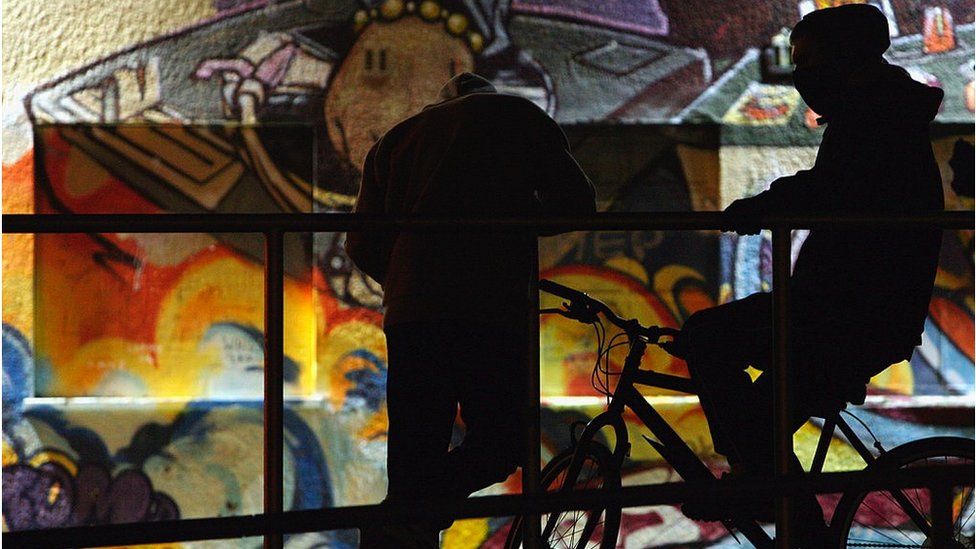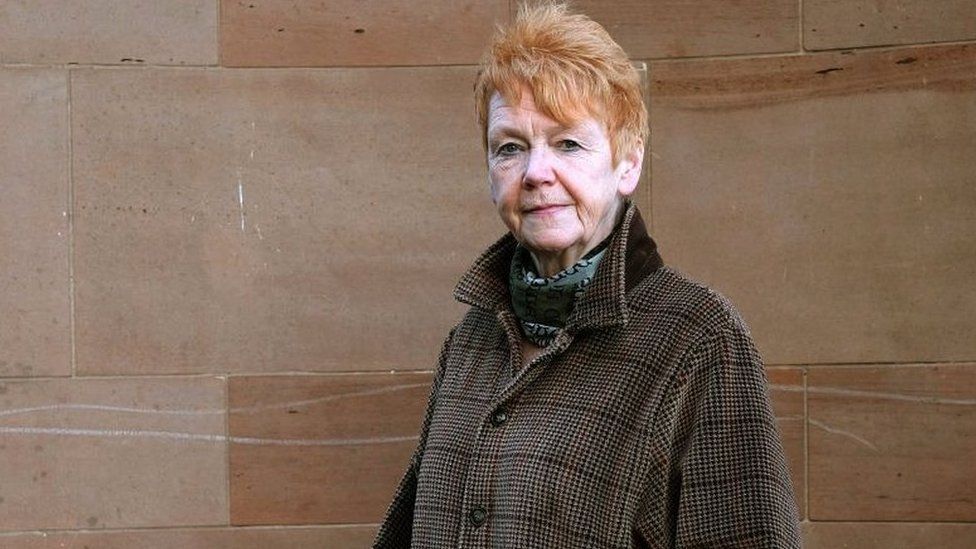BBC Panorama has found an important tool to help victims of anti-social behaviour is rarely used.

Image source, Getty Images
Anti-social behaviour can devastate lives. Yet BBC Panorama has found an important tool to help repeat victims is rarely being used.
What starts as nuisance can quickly escalate to a more serious crime.
“I heard noises at the front of the house,” says Paul, who has asked us to conceal his real identity. He saw more than 20 youths outside his house, some as young as nine. “[They] began to throw big pieces of concrete at my house and myself.”
Paul’s ordeal started last August after challenging a group who had climbed on a nearby roof. After that, he became a target.
Last November, he saw a group of youths coming towards the back of his house one night. ”They had a long metal pole that looked like a spike,” he says, “they put it through the window and all the glass shattered and went across the room.”
He didn’t know where to move. Paul then heard a noise at his front door and realised he was surrounded. He called the police, who sent a patrol car, but the group had gone by the time it arrived.
In the past five months almost every window in Paul’s house has been broken. He has made calls to the police on 11 different days – sometimes twice a day. Cleveland Police has assigned a community support officer and increased patrols. Paul’s housing association have helped install CCTV.
It’s been quiet since December, but he’s still nervous.
‘A serious responsibility’
Accusations of anti-social behaviour can sometimes begin with disputes between neighbours. If they get out of hand, the impact can be extremely serious, particularly on people’s mental health.
In March last year, John Grocott discovered his twin sister Amanda Dunn’s body slumped on her kitchen floor at her home in Staffordshire. She had taken her own life.
John believes the decline in her mental health dates back three years, to a minor dispute with a neighbour over bird feed. The dispute escalated, with accusations on both sides. He believes the stress was the “trigger of her downfall”.
Amanda had called Staffordshire Police twice about the dispute and had contact with a neighbourhood police officer before her death. She had told police she was “at the end of her tether”.
At an inquest, South Staffordshire’s coroner didn’t hear from Amanda’s neighbours, but said a “major reason for her fatal actions was an ongoing problem” with them.
In a later report to Staffordshire Police, the coroner said while he had only heard one side of the story, there was a real concern police were ”seeking to brush such incidents under the carpet and not taking them sufficiently seriously”.
Staffordshire Police said it had apologised to Mrs Dunn’s family for its response. “We have taken on board the concerns identified by the coroner and have put in place actions to improve our response to cases like this.”
The neighbours involved in the dispute said what happened to Mrs Dunn was “very, very sad” and pointed out “there are always two sides to arguments such as this”.
But John Grocott is calling for the police to be “more alert” in these cases.
Panorama’s research has identified four more deaths in the last 12 months in which anti-social behaviour is alleged to have played a part.
The victims’ commissioner, Dame Vera Baird, says such deaths are shocking and should be seen as a “failure to protect” by police and local authorities. “It is a serious responsibility,” she added.
Deputy Chief Constable Andy Prophet, the National Police Chiefs’ Council lead for anti-social behaviour, says authorities need to do better at “early understanding of the problem”. He said: “Early engagement is seldom a single agency. Getting the response right together is the best way to prevent those small number of horrific tragedies that can happen.”
But there are concerns about how anti-social behaviour is being dealt with.

Image source, Getty Images
It’s hard to know the full scale of anti-social behaviour because police statistics don’t reflect reports to local authorities and housing associations.
In the 12 months up to June 2021, the police recorded 1.8 million incidents of anti-social behaviour in England and Wales.
In Northern Ireland, police recorded more than 71,000 incidents of anti-social behaviour in the same period. Part of these two figures reflects breaches of Covid restrictions.
In Scotland, there were around 372,000 incidents of anti-social behaviour reported to the police in the year to the end of September 2021, according to a Freedom of Information request.
Police and local councils use a broad range of powers to crack down on anti-social behaviour.
In England and Wales, if a victim feels authorities aren’t doing enough, they can use something called an Anti-Social Behaviour Case Review, also known as the “community trigger”.
It was introduced in 2014 and victims of anti-social behaviour who have complained a number of times can ask agencies – including their police force and local council – to meet and take a fresh look at the problem.
Dame Vera says it’s an “excellent” tool for victims, because it gives them the power to say “put this right” and it is the responsibility of the local authorities, police and crime commissioners to promote it.
Panorama wrote to all 331 council districts in England and Wales with responsibility for anti-social behaviour to find out how many community triggers had been run.
Because the collection of data is inconsistent, it is impossible to be precise about how often it had been used. However, data from the 191 authorities that replied suggests about 300 were held in 2021.
Of those to respond, 37 local authorities – around one in five – said they had never run a community trigger.
Dame Vera says victims of anti-social behaviour are still not being made a high enough priority. She says part of the reason is police regarding it as “a sort of sub-crime – a bit of bother”.
Mr Prophet said the police don’t see anti-social behaviour as a low-level crime. He said: “We are incredibly focused on helping officers see and understand those cases that are potentially looking really concerning.”
The government says it “is committed to tackling anti-social behaviour and ensuring that victims get the support they deserve.” It says all local councils were written to last year “to remind them of their duties around community triggers” and police involvement in them will be monitored.
You can watch Panorama’s Anti-Social Behaviour: Afraid in My Own Home on BBC1 on Monday 24 January at 19:30 GMT and on iPlayer.